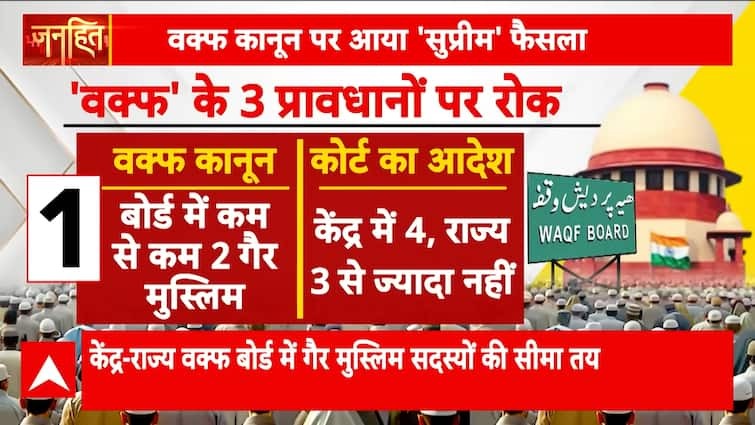In a landmark decision, the Supreme Court of India delivered a mixed verdict on the new Waqf Act. While it refused to strike down the law entirely, the Court put a temporary stay on three key provisions, allowing both the government and the opposition to claim victory. First, the Court stayed the clause that limited non-Muslim representation on Waqf Boards to a maximum of four at the central level and three at the state level. Second, it ruled that no property can be declared Waqf until the District Magistrate’s report is received — halting any immediate change in property ownership. Third, the requirement for a person donating property as Waqf to be a Muslim for at least five years has also been put on hold until further government notification. Political reactions poured in, with opposition parties calling the decision a relief and questioning the BJP’s motives regarding Waqf properties. Meanwhile, in Bihar’s Muzaffarpur, controversy erupted as Mahatma Gandhi’s statue was adorned with BJP symbols. This sparked outrage, leading RJD leaders to “purify” the statue with holy water.



